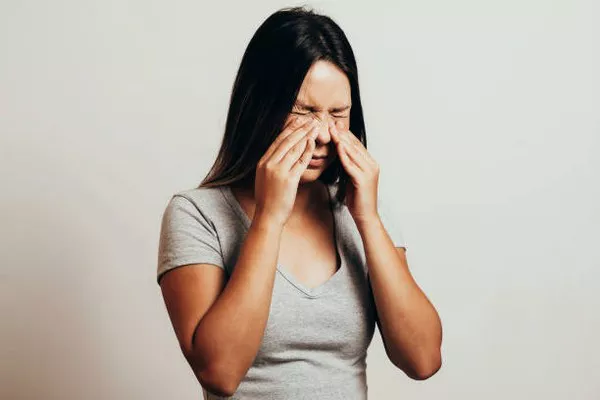Face allergies, though not as commonly discussed as general skin allergies, can significantly impact an individual’s well-being and confidence. The face, being one of the most exposed and visible parts of the body, is susceptible to a range of allergens that can trigger adverse reactions. In this article, we explore the intricacies of face allergies, shedding light on the potential causes, symptoms, and effective management strategies.
Unveiling the Causes of Face Allergies:
1. Contact Dermatitis:
One of the primary culprits behind face allergies is contact dermatitis. This condition arises when the skin comes into direct contact with an irritant or allergen, leading to redness, itching, and inflammation. Common allergens include certain cosmetics, skincare products, and fragrances.
2. Environmental Allergens:
The face is exposed to a myriad of environmental allergens such as pollen, dust mites, and pet dander. Individuals with allergies to these environmental triggers may experience symptoms on their face, including nasal congestion, red eyes, and skin reactions.
3. Food Allergies:
Certain food allergies can manifest on the face, causing skin reactions such as hives or eczema. Common food allergens include nuts, shellfish, dairy, and gluten. It’s essential to recognize the link between dietary choices and face allergies for effective management.
4. Insect Bites and Stings:
Insect bites or stings, particularly on the face, can lead to allergic reactions. Swelling, redness, and itching are common symptoms. Severe reactions, such as facial swelling, may require immediate medical attention.
5. Medication Allergies:
Some individuals may develop allergic reactions to medications, and these reactions can manifest on the face. Allergic reactions to medications can range from mild rashes to more severe symptoms like facial swelling or difficulty breathing.
Decoding Symptoms of Face Allergies:
1. Redness and Inflammation:
One of the hallmark symptoms of face allergies is redness and inflammation. The skin may appear flushed or swollen, indicating an immune response to an allergen.
2. Itching and Irritation:
Persistent itching and irritation on the face are common indicators of an allergic reaction. Individuals may experience a constant urge to scratch the affected area, exacerbating the symptoms.
3. Rashes and Hives:
Allergic reactions often manifest as rashes or hives on the face. These can vary in size and severity, causing discomfort and impacting the aesthetic appearance of the skin.
4. Dry or Flaky Skin:
Face allergies may lead to dry or flaky skin, especially if the allergen disrupts the skin’s natural barrier. This can result in discomfort and a compromised skin barrier.
5. Facial Swelling:
Severe allergic reactions may cause facial swelling, a condition known as angioedema. This can be a medical emergency, requiring prompt intervention.
Effective Management Strategies:
1. Identify and Avoid Allergens:
The first step in managing face allergies is identifying the specific allergen triggering the reaction. This may involve patch testing for contact dermatitis or allergy testing for environmental or food allergens. Once identified, avoiding exposure to the allergen is crucial.
2. Skincare and Cosmetic Choices:
Individuals prone to face allergies should opt for hypoallergenic skincare and cosmetic products. Fragrance-free options may be beneficial, as added fragrances can be common allergens.
3. Environmental Controls:
Implementing measures to minimize exposure to environmental allergens, such as using air purifiers and practicing good hygiene, can help manage symptoms.
4. Hydration and Moisturization:
Keeping the skin well-hydrated and moisturized is essential in managing face allergies. This helps maintain the skin barrier and reduces the risk of dryness and irritation.
5. Antihistamines and Topical Treatments:
Over-the-counter antihistamines can provide relief from itching and redness. In some cases, topical corticosteroids may be recommended for their anti-inflammatory effects.
6. Medical Intervention:
Severe face allergies, especially those involving facial swelling or difficulty breathing, require immediate medical attention. In such cases, an epinephrine auto-injector may be prescribed for emergency use.
Preventive Measures for Face Allergies:
1. Patch Testing:
For individuals prone to contact dermatitis, patch testing can help identify specific allergens present in skincare or cosmetic products. This enables informed choices in product selection.
2. Regular Allergy Testing:
Individuals with recurrent or unexplained face allergies may benefit from regular allergy testing. This can help identify underlying environmental or food allergens contributing to the symptoms.
3. Insect Bite Prevention:
Minimizing exposure to insects through the use of insect repellents and protective clothing can help prevent allergic reactions from bites or stings on the face.
4. Allergen-Free Diet:
Those with food allergies contributing to face reactions should adhere to an allergen-free diet. Working closely with a healthcare professional or allergist can help create a safe and nutritious meal plan.
Conclusion:
Face allergies, though often underestimated, can significantly impact an individual’s quality of life. Recognizing the causes, symptoms, and effective management strategies is pivotal in navigating this complex aspect of allergic reactions. By adopting preventive measures, making informed lifestyle choices, and seeking timely medical intervention when needed, individuals can manage face allergies and foster skin health and well-being.


